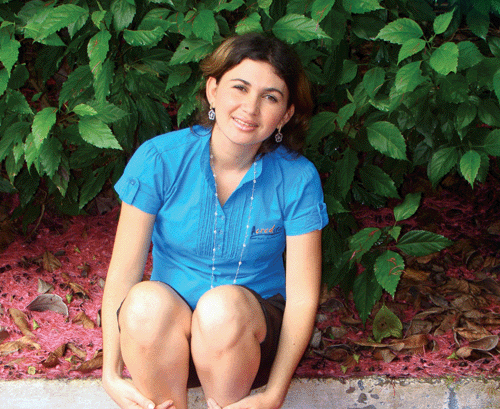Long before Muhammed Yunus won the 2006 Nobel Peace Prize for his work in developing Bangladesh’s Grameen Bank, microcredit had evolved into one of the most effective tools for helping would-be small business entrepreneurs pull themselves out of poverty. Brazilian Lilian do Prado Silva has been successfully applying that model in this hemisphere since 2001—with a special focus on young people.
After working in agricultural programs for youth for several years, Silva founded ACREDITAR, a microcredit institution in her native Pernambuco in northeastern Brazil, when she was just 23 years old. In doing so she hopes to counter the trends of poverty and unemployment that were driving her young and ambitious peers to the more prosperous south. Two years later, Silva wants to extend credit and opportunity to entrepreneurs in one of Brazil’s poorest regions. Unlike traditional micro-lending institutions, ACREDITAR, which is operated and run by young people, perceives education as a core function. It offers classes on business management, personal finance and sustainable agriculture. That last category is particularly important to Silva, who once aspired to be a lawyer because she thought it would be a more “dignified” career than working on her family’s farm.
Silva hoped to use a law career to fight for the legal rights of her community. But her early involvement in SERTA (Service for Alternative Technology), a local nonprofit that educates youth in sustainable agriculture technology, persuaded her that she could achieve more by helping people to realize their economic potential. SERTA offered some finance courses, and Silva soon began to use it as the framework for creating a new organization.
ACREDITAR—which means “to believe” in Portuguese, but is also a play on “crédito”—was born when it became clear that it would be necessary to form a new entity that would have the legal right to give loans. Founded in 2007 with $10,000 Reais ($5,000) from the Kellogg Foundation, it has since expanded its capital to more than $100,000 and operates in seven cities in the state of Pernambuco. The organization has since received training and equipment from Fundação Itaú Social and the state of Pernambuco, and has been recognized by UNICEF for its work with youth. Last November, Silva was named an Ashoka fellow, a fellowship awarded to approximately 200 individuals worldwide each year for innovative social entrepreneurship; she was the youngest fellow elected in Brazil that year.
But perhaps the greatest tribute to her efforts is the fact that ACREDITAR has helped spark business creation throughout the region. ACREDITAR’s clients, which to date number more than 600, have started businesses in irrigation, organic agriculture and prepared foods. While Silva’s finance expertise could easily land her a plum job in Brazil’s private sector, she plans on sticking with ACREDITAR. “We still have a lot of work to do,” she says. “We hope to become a recognized brand for the region.”






